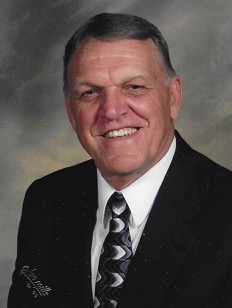NC Senate Race Sparks Opinions
Students share issues they hope for North Carolina’s next senator to address
North Carolina voters cast their ballots Nov. 8 to elect their next state representatives. Though all midterm election outcomes are significant, the 2022 North Carolina senate race is of particular importance.
Former Senator Richard Burr decided not to run for re-election, leaving a vacancy for an entirely new senator to fill.
Prior to Ted Budd winning the election, students deliberated the issues they wanted North Carolina’s next senator to address in office. Senior Gabriel Del-Bosque is focused on the economy.
“Personally, I would like to see them come together to form some sort of proper new economic legislation, and just an actual game plan for how inflation and how the economy is going to shape out for the next few years. I want a long-term solution for that,” Del-Bosque said.
Similarly, junior Jeffrey Coleman emphasizes pocketbook issues.
“Minimum wage, because it’s the same, and inflation is all the way up. Inflation, if you’re being paid minimum wage, it’s barely enough to live per year,” Coleman said.
Sophomore Rylee Rosonke hopes her issue does not get lost in the focus on the economy.
“One issue I would like to see them address is what North Carolina is doing to stop climate change and decrease ocean pollution. This issue is a number one priority, because a lot of times, people push climate change and pollution-related issues to the side until it’s too late,” Rosonke said.
In addition to climate change, some students hope North Carolina’s next senator will introduce legislation regarding environmental sustainability.
“I think they should work on deforestation problems because a lot of trees are being cut down, and that is bad for the environment,” senior Nathan Konopka said.
Others would like our senator to initiate public school system reform.
“Teacher pay is an important topic that I think they should definitely focus on,” senior Camryn Hills said.
Senior Cameron Timo explains a different aspect of school reform.
“I think the senator should talk about shortening the school day because if we just get our class done an hour each, we can get home by 1 p.m. and do our homework, and then we’ll have more time to sleep, so we’ll get to school on time,” Timo said. “I’m done with the long days. There’s no reason I should be sitting in my class for one and a half hours with 30-minute work that I could also be doing at home.”
Junior Ethan McMican wishes for our next senator to support federal legislation that many states have already passed.
“Legalize Marijuana. This is on the top of my list for me, since it’s something that has been around forever, and it’s already used for medical use, so might as well make it legal everywhere,” McMican said.
In light of the Supreme Court overturning Roe v. Wade in June, abortion is a critical topic that divides North Carolinians this election. Many students are focused on this issue.
“I would like the new senator to discuss the protection of reproductive rights and health. It is incredibly important for anyone with a uterus to know that they have control over the functions of their bodies and won’t be forced to continue an unwilling or dangerous pregnancy,” junior Grace Hare said.
Junior Dani Dorta wishes for the senator to clarify the legality of abortion in our state.
“I think that the senator should address the abortion laws. I think that North Carolina is kind of in a gray area, and I think we need someone to speak up and make a final decision on whether or not abortions will be legal here in North Carolina,” Dorta said.
Though most of our student body is too young to vote, this does not stop students from caring about our state’s political representation and rectifying nationwide issues. Sophomore Natalie Cardona-Bennett expresses why she wants North Carolina’s next senator to recognize racism and work toward equality.
“More diversity within our own communities and recognizing that racism is still very prominent in our communities today, and we need to acknowledge it so that we can help fix it and get to the root of the problem efficiently,” Cardona-Bennett said. “I think definitely because I’ve been the most exposed to it. I’ve lived in very diverse communities my entire life, so I witnessed firsthand what racism is and how it affects a majority of different communities. It’s something I’m very passionate about.”






